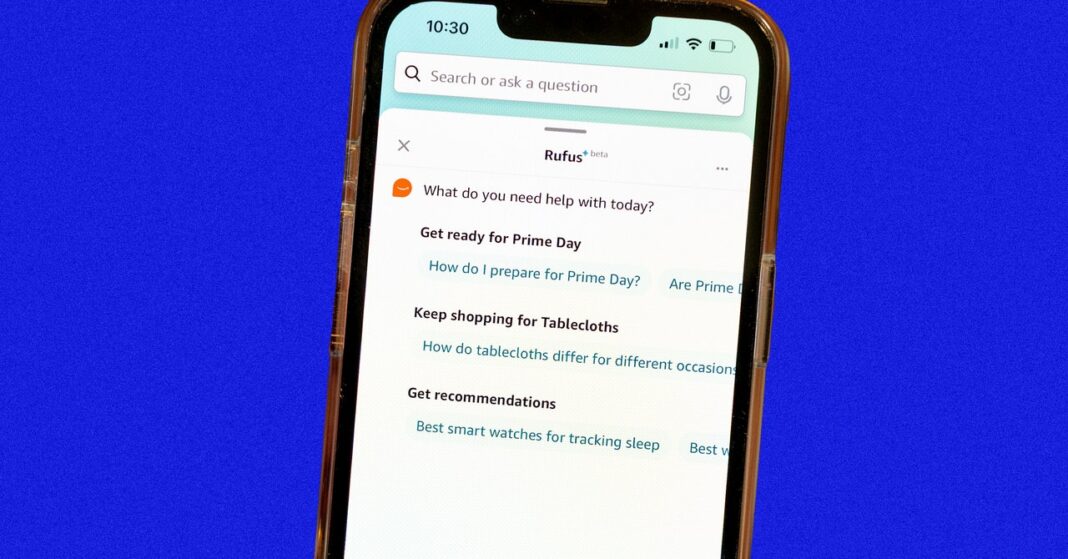In Short:
Amazon’s new chatbot, Rufus, may encourage more users to shop by providing price history on products. Trained on various data, Rufus aims to make information more accessible. While some price tracking services aren’t worried about competition, they believe comprehensive data is vital for informed shopping. Despite some limitations, such as not answering ethical shopping questions, Rufus could become a valuable tool for consumers.
If Amazon’s initiative to share price history through its chatbot, Rufus, expands and demonstrates viability, it may serve as a compelling reason for users to engage with the platform. Trishul Chilimbi, an executive vice president at Amazon overseeing research operations, indicated last week that his teams have trained Rufus on a wide array of data, including product details, user reviews, and Q&A submissions from the company’s website, as well as additional public information sourced from the internet. This means that Rufus facilitates user access to information that would typically require individual effort to compile.
Challenges in Accessing Price History
However, accessing nuanced or behind-the-scenes data, such as changing prices, presents more challenges. For example, when WIRED tested popular price tracking tools like CamelCamelCamel and Glass It, they found a lack of data on the LifeStraw filter. In contrast, the tool Keepa provided information dating back to 2017, recording a notable low price of $8 in 2022.
Despite this development, executives from Keepa and Glass It expressed to WIRED that they do not fear competitive threats from Rufus, citing their data’s comprehensiveness and the diverse tools, including price alerts, they offer. Amor Avhad, the founder of Glass It, commented, “Amazon making moves to provide price history data directly to users is good for all of us as consumers who are looking to make informed buying decisions.”
Transparency Issues Surrounding Amazon
Amazon has faced criticism for its transparency in certain operational areas. The U.S. Federal Trade Commission is currently pursuing two lawsuits against Amazon, alleging deceptive and anticompetitive practices that have obfuscated issues like subscription renewals and sales algorithms for both shoppers and sellers. On the other hand, regarding product pricing, Amazon has taken steps towards greater transparency with its customers.
For instance, users are notified if the price of an item they have added to their cart changes—whether it increases or decreases—even by a single cent. Additionally, if Amazon determines that its pricing on an item is not competitive compared to other retailers, it may make the ‘Buy’ button less accessible, requiring buyers to navigate through extra screens before completing their purchase.
The Impact on Merchants and Consumer Shopping
It remains to be seen how access to price history will influence merchants. Tristan Månsson-Perrone, a seller at Radius Outfitters, shared that his business does not change pricing frequently. He notes that customers may not gain significant insights by querying Rufus for price history.
Amazon has focused on branding Rufus—as named after a corgi that was a fixture in the company’s early days—as a reliable companion to consumers. The chatbot is designed to summarize reviews by outlining pros and cons, and it even suggests products outside of Amazon’s inventory without appearing overly commercial.
Limitations and Future Considerations
Nevertheless, WIRED found that Rufus was not able to assist with ethical shopping inquiries, such as identifying which brands supported specific political causes or events. Furthermore, there is prevailing uncertainty about whether tools like Rufus could detract from revenues in the professional review industry, including WIRED‘s own operations. These limitations and concerns emerged as secondary issues when Rufus was perceived as a less innovative offering. However, with its newly acquired pricing data, it may well evolve into a critical resource for consumers.





